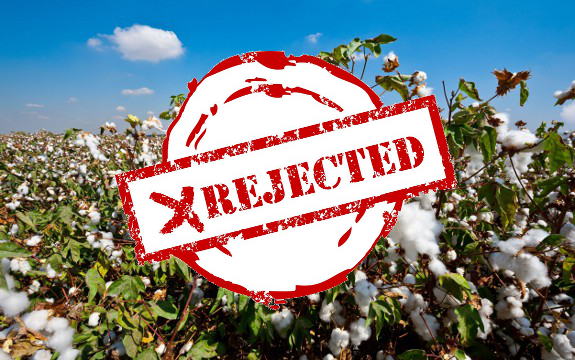Win: EPA Denies Texas’ Farmers Request to Use Dangerous Herbicide on Fields

Just weeks ago a Texas farmers wanted to pour an unlicensed herbicide all over 3 million acres of genetically modified cotton in an ‘emergency’ attempt to stop the forward advance of superweeds taking over the farmer’s fields. In a surprising turn of events, the U.S. Environmental Protection Agency (EPA) has denied an emergency request to use toxic propazine to kill the resistant superweeds, for once supporting sustainable farming practices, and not biotech genocide.
GM manufacturers clearly promote the use of their products, but they are increasingly finding it difficult to continue lying to farmers and consumers about the efficacy of their toxic chemicals and GM seed. Farmers around the world have already been warned that the GM-biotech model was causing superweeds – this news has been around for years – so there is no way that an ‘emergency’ situation to use yet another poison should be allowed.
It is indeed a pleasant surprise that the EPA refused the emergency request from the Texas Department of Agriculture to use propazine – since it is possibly even more toxic than glyphosate.
Jay Feldman, executive director of Beyond Pesticides stated:
“This is not an emergency because the weed resistance is predictable since it has been known for many years that GMO cotton sprayed with glyphosate would create resistant superweeds. . .It is an abuse of the law to prop up failed GMO cropping systems with toxic chemicals when viable alternatives, like organic growing methods, exist.”
The EPA was urged by public health advocates, environmental groups, and organic farmers alike to deny this ‘emergency’ request. GMO cotton grows all over the huge state of Texas. If they had been allowed to use yet another toxic herbicide, it could have dramatically affected organic farms nearby, destabilized the water and soil, and caused a general mess of the already ailing agricultural system in the state.
Jack Housenger, EPA director of the office of pesticide programs, wrote in the agency’s response to the request, according to the Wall Street Journal:
“Based on an assessment consistent with EPA’s legal responsibilities, drinking water estimates suggest that risks from drinking water alone may lead to unacceptable risks in some cases.”
The EPA still made the decision to refuse the request even though it met urgent and non-routine emergency criteria. Groups like Beyond Pesticides and thousands of organic farmers are taking a huge sigh of relief knowing that GM cotton farmers won’t get to spray more toxic chemicals indiscriminately.
“While we disagree with the EPA that this meets any of the criteria for emergency exemption, we applaud the EPA for putting the health of people and the environment first and upholding the health and environmental standards under the law,” Jay Feldman, executive director of Beyond Pesticides, said in a statement.
Texas Department of Agriculture officials lamented the news of not being able to tell farmers they could use carcinogenic propazine, but perhaps they should be looking into more sustainable farming practices. Multiple universities in Texas and elsewhere have plans for better farming in the state – perhaps they should listen.

For once, the EPA made the Right decision!